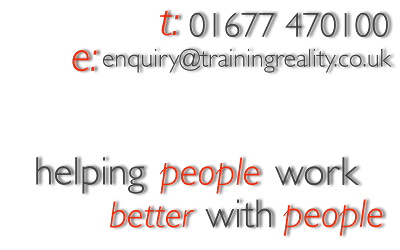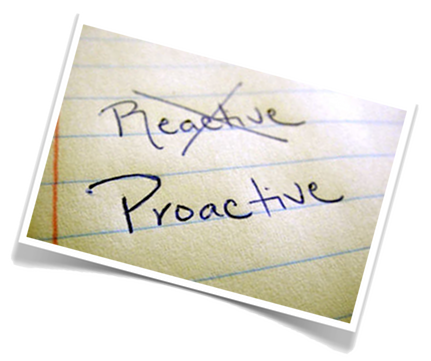Please press (at least!) one of these.
It costs you nothing, and (possibly) helps us spread the word!
Proactive or reactive? Or deactive?
Monday, 21 March 2011
This is the fifth article in a short series attempting to extract the real meaning from some phrases that have sunk to the status of irritating cliché. You can see the earlier articles here:
- taking the "helicopter view" - click here
- thinking "outside the box" - click here; and
- creating "win-win" situations - click here
- involving all 'stakeholders' - click here
Another "challenge" often thrown about by unimaginative managers is to ask their people to be "proactive, not reactive". I always enjoy the thought of never being reactive; the thought that reacting to a changing set of circumstances is somehow poor. Equally challenging is the opposite of that: pure proactivity may be doing things regardless of circumstances. A simplistic notion that it's better to head out and just "do new things" rather than respond to circumstances with appropriate actions seems rather bizarre, but the phrase, in its clichéd use, promulgates this message.
There is, of course, something in it though. Sitting around waiting for something to happen is unlikely to make a business or organisation flourish. Making efforts to find or create new ideas, to challenge existing plans and processes, or imagine what could be. Being fair, this (I hope) is what the intention behind the expression is.
So, instead of risking irritating your people by asking them to be "proactive, not reactive", perhaps you could:
- ask them what they'd like to change about the organisation;
- find out what they think is least effective about they way you all work;
- discuss what their best ideas are for selling or making more, or reducing cost;
- review the best and worst things your customers say about you; or
- get them to list the biggest mistakes and best approaches that there are in your sector.
By engaging people in the process of looking for things to change, you stand a much better chance of exciting them, of encouraging them, and of getting them to stop sitting around waiting for things to happen. You also stand a much better chance of not been seen as your organisation's David Brent.
Please press (at least!) one of these.
It costs you nothing, and (possibly) helps us spread the word!



